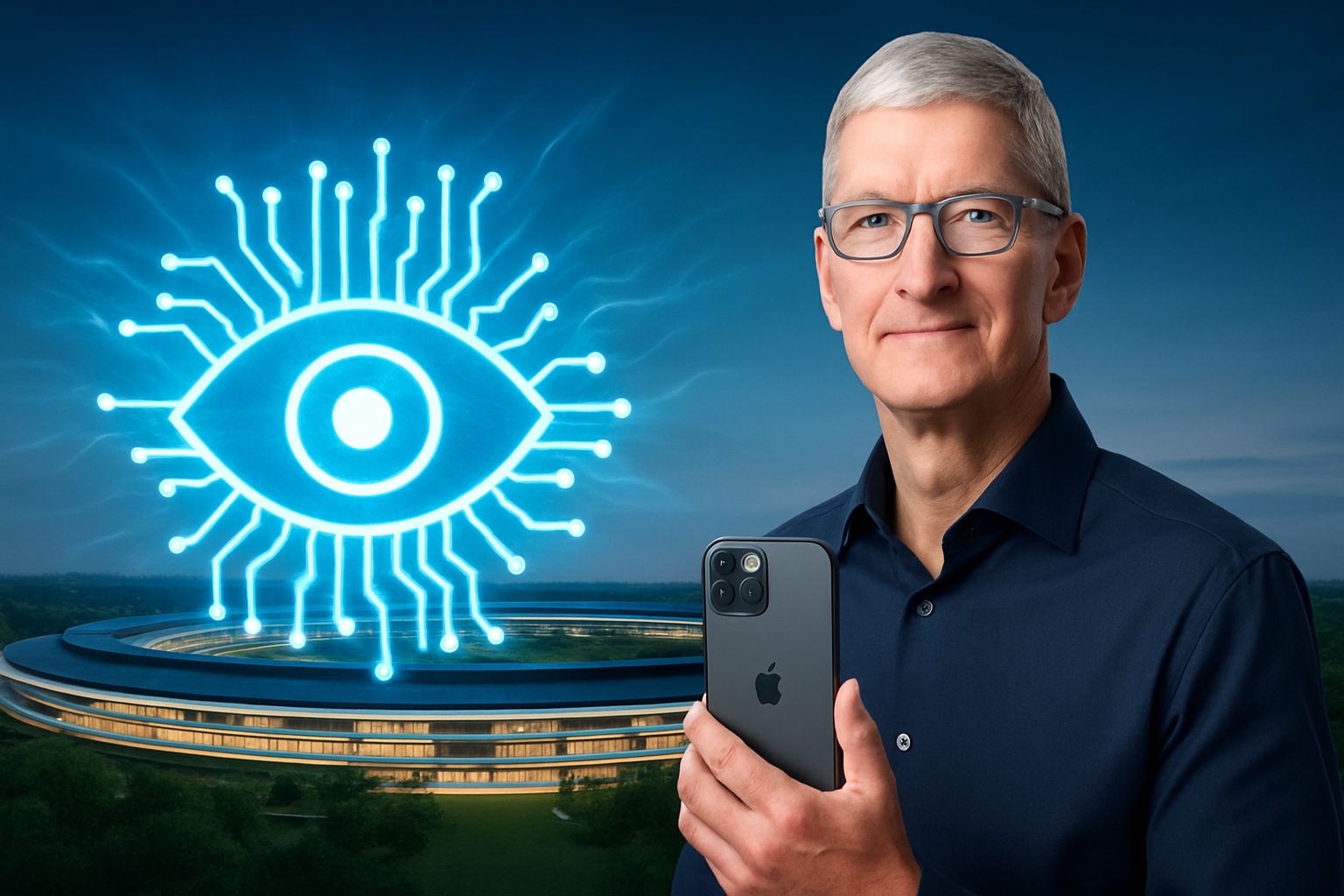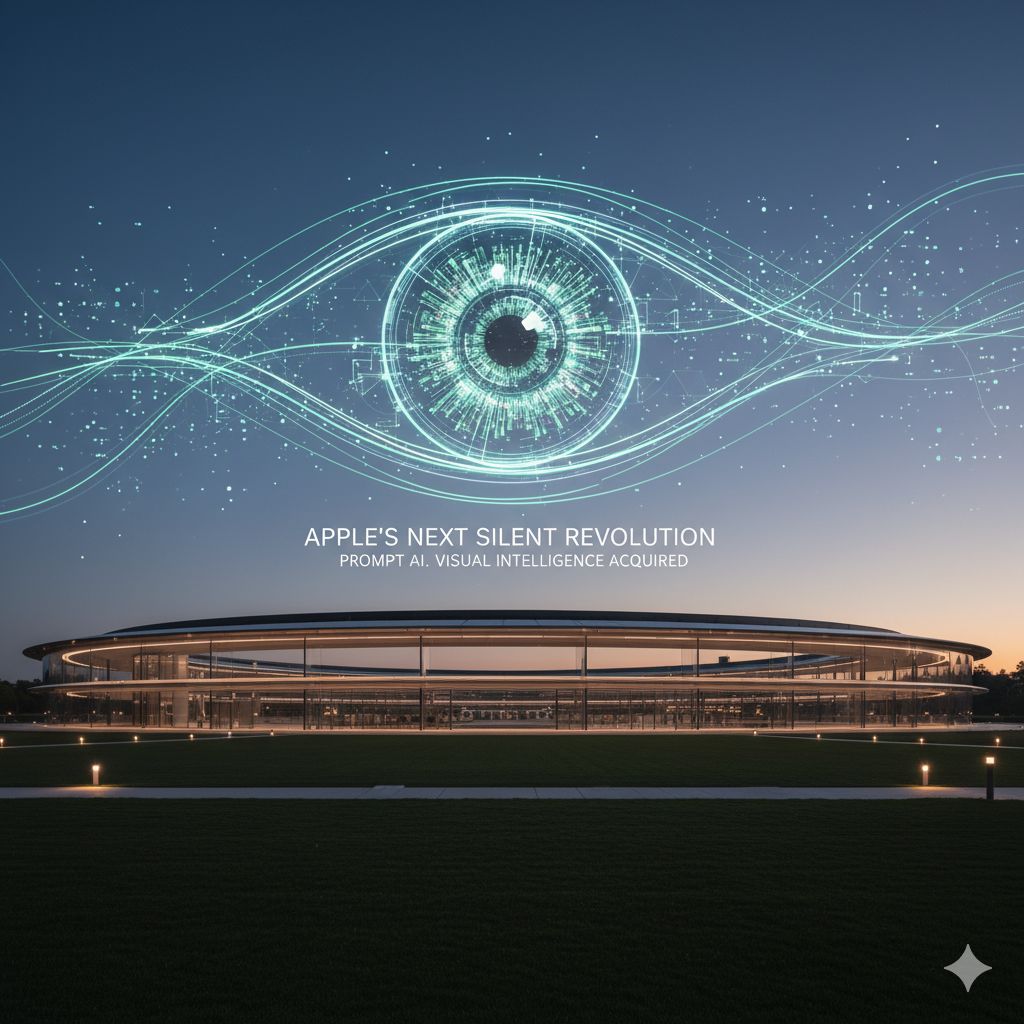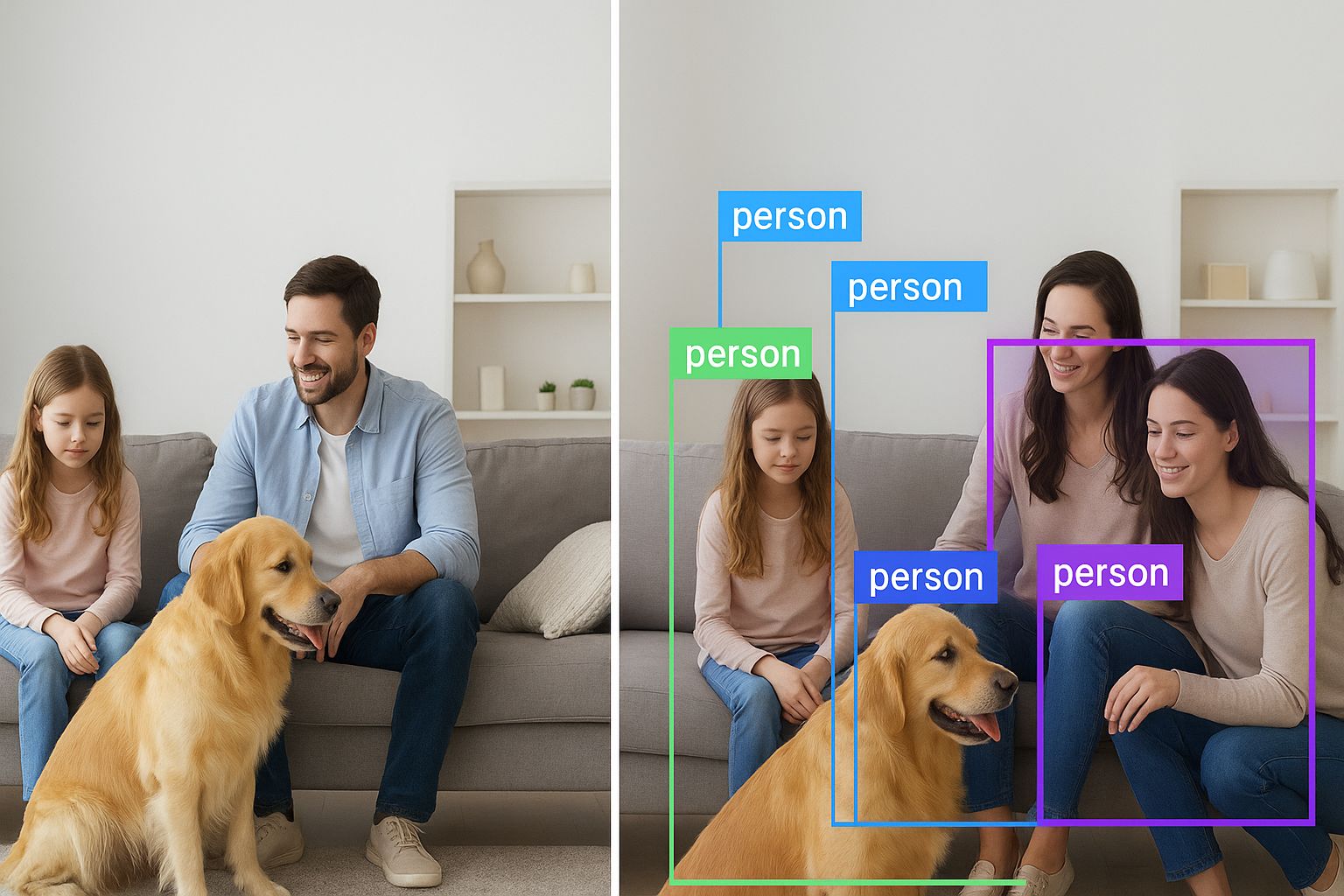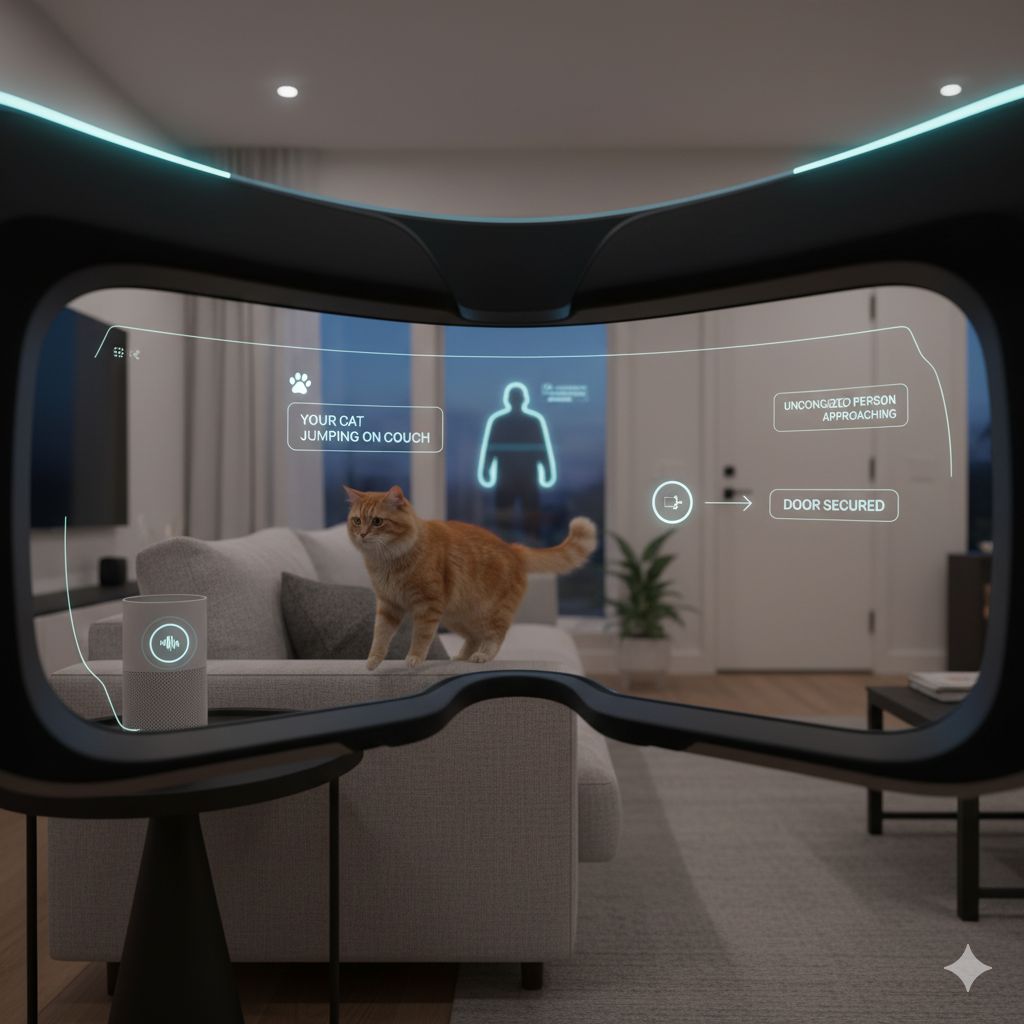- MINDSCOPE
- Posts
- Apple’s Quiet Power Move: The Hidden AI Deal That Could Redefine Your Smart Home
Apple’s Quiet Power Move: The Hidden AI Deal That Could Redefine Your Smart Home
Inside Apple’s strategic talent grab from Prompt AI — and what it reveals about the company’s next big leap in computer vision.

👋 Hello Innovators,
Welcome back to The Future Wire — your weekly deep dive into the stories shaping tomorrow’s technology.
This week, we’re looking beyond the headlines to uncover why Apple’s latest move isn’t just another acquihire, but a subtle signal of how the company plans to rewrite the future of AI and smart homes.
🍏 Apple’s Next Silent Revolution
In typical Apple fashion, the tech giant is making waves without making noise.
Sources close to the matter reveal that Apple is nearing a deal to acquire the engineering team and core technology from Prompt AI, a small but ambitious startup specializing in computer vision — the field that allows machines to see and understand the world around them.
Unlike the billion-dollar blockbuster acquisitions we’ve seen from Meta or Google, Apple’s latest play focuses on strategic talent and proprietary tech, not market splash.
Prompt AI, founded in 2023, quickly gained attention for its breakthrough in visual intelligence — tech that makes home cameras smart enough to recognize who or what they’re seeing and describe events in natural language.

🧠 Meet Prompt AI: The Startup That Caught Apple’s Eye
Prompt AI was founded by two visionaries out of UC Berkeley:
Tete Xiao, an accomplished AI researcher with a PhD in Computer Science, and
Trevor Darrell, co-founder of the renowned Berkeley Artificial Intelligence Research (BAIR) Lab.
Together, they built Seemour, an app that transformed ordinary home cameras into intelligent observers. The system could detect familiar faces, pets, or unusual movement, and even provide text-based summaries of what happened in front of the camera — like your own personalized home AI assistant.
It was a product that demonstrated deep potential but lacked one thing: a sustainable business model.
Despite early success and a $5 million seed round led by AIX and Abstract Ventures, Prompt struggled to turn its technology into a scalable product. According to internal discussions obtained by CNBC, executives admitted that “the tech worked brilliantly, but the business didn’t.”
When Apple came knocking, the opportunity to fold their vision into a larger ecosystem became hard to ignore.

🧩 Visual Idea:
Side-by-side image comparison: a regular home camera feed vs. an AI-enhanced visualization detecting people, pets, and objects with clean bounding boxes.
💼 Inside the Deal: What We Know So Far
Prompt AI’s team of 11 engineers is expected to join Apple, bringing with them their proprietary algorithms and models.
While investors will recover some of their capital, insiders say they “won’t be made whole” — meaning the exit won’t deliver full returns.
For Apple, this isn’t about financial scale — it’s about intellectual leverage.
The company gains access to:
Advanced computer vision models built for real-time object tracking.
A team trained at the frontier of academic AI research.
A working consumer app that proves practical implementation.
Prompt employees who choose not to transition to Apple will receive reduced compensation but have been encouraged to apply for other Apple roles.
Meanwhile, competitors weren’t far behind — Elon Musk’s xAI and Neuralink reportedly showed interest in acquiring the startup. But Apple’s offer of stability and integration into its growing AI ecosystem tipped the scales.
🏠 Why This Matters: The Future of Apple’s Home Ecosystem
If you’ve followed Apple’s AI ambitions, you know the company has been cautious — even deliberate — compared to its Silicon Valley peers.
While OpenAI, Google, and Anthropic race ahead with massive AI models, Apple’s focus has always been user experience first, technology second.
So where does Prompt AI fit in?
The answer: HomeKit and the connected home.
Imagine asking your iPhone or HomePod not just “Is the door locked?” but “Did anyone visit while I was gone?” or “Did the dog come inside after 6 PM?”
That’s the kind of contextual, visual intelligence Prompt’s technology enables.
By integrating it into HomeKit, Apple could create a seamless ecosystem where devices understand not only commands — but situations.
This acquisition could quietly transform Apple’s home automation experience into something that feels more human, more intuitive, and more aware.

📉 Apple’s Slow Climb in AI — and Why That’s Changing
Apple’s measured approach to artificial intelligence has long drawn criticism.
Its Apple Intelligence suite — the company’s branded generative AI effort — launched to mixed reviews. While it introduced smarter writing tools and on-device processing, it lagged behind OpenAI’s and Google’s large-scale models.
Analysts suggest Apple’s hesitation stems from its commitment to privacy and tight ecosystem control. Rather than integrating third-party AI systems that might compromise data security, Apple prefers to build its own — even if it takes longer.
But that strategy has had consequences. Apple’s stock has dipped 2% this year, underperforming major indexes and placing it last among the “Big Five” tech stocks.
Investors are eager for signs that the company can lead again in AI — not just follow.
The Prompt AI acquisition, though small in dollar value, signals a shift: Apple is finally recognizing that AI progress isn’t just about large models — it’s about specialized intelligence that enhances its hardware and services.
🧩 A Pattern of “Acquihires” — Apple’s Secret Weapon
While Meta and Google pour billions into headline-making acquisitions, Apple’s M&A playbook is quieter and more targeted.
Over the past decade, Apple has snapped up dozens of niche AI and computer vision startups — from Xnor.ai to Regaind — and integrated their technology into products like Face ID, Photos, and the Vision Pro headset.
Prompt AI fits neatly into that lineage.
These smaller acquisitions allow Apple to:
Avoid regulatory scrutiny.
Absorb innovation without cultural shock.
Build long-term proprietary advantages.
In essence, Apple isn’t chasing AI — it’s absorbing it.
🥽 The Bigger Picture: Apple’s Vision for Vision
Beyond the smart home, Apple’s real ambition might be fusing Prompt AI’s tech into its visual computing platform — especially the Vision Pro headset.
The headset already excels at spatial recognition and object tracking, but Prompt’s algorithms could enable deeper contextual awareness — identifying what’s in your environment and why it matters.
Think of a world where your Apple Vision Pro not only maps your surroundings but narrates them — intelligently distinguishing between your cat jumping on the couch and a stranger approaching the door.
That’s not science fiction. It’s the logical next step in Apple’s AI evolution.

🔮 Final Thoughts: A Small Deal with Massive Implications
Apple’s move to acquire Prompt AI isn’t about short-term headlines — it’s about long-term architecture.
It reinforces Apple’s philosophy that AI should be invisible yet indispensable — woven into daily life, not paraded as a standalone product.
While competitors build AI empires, Apple builds ecosystems.
And in a world increasingly defined by synthetic intelligence, that quiet strategy might just be its loudest advantage.
🙏 Thanks for Reading
That’s it for this week’s Future Wire.
If you enjoyed this breakdown, consider sharing it with fellow tech enthusiasts — every share helps this community grow.
Stay curious, stay informed,
— MINDSCOPE
Bank Boldly. Climb Higher.
Peak Bank offers an all-digital banking experience, providing all the tools and tips you need to make your way to the top. Take advantage of competitive rates on our high-yield savings account and get access to a suite of smart money management tools. Apply online and start your journey today.
Member FDIC

